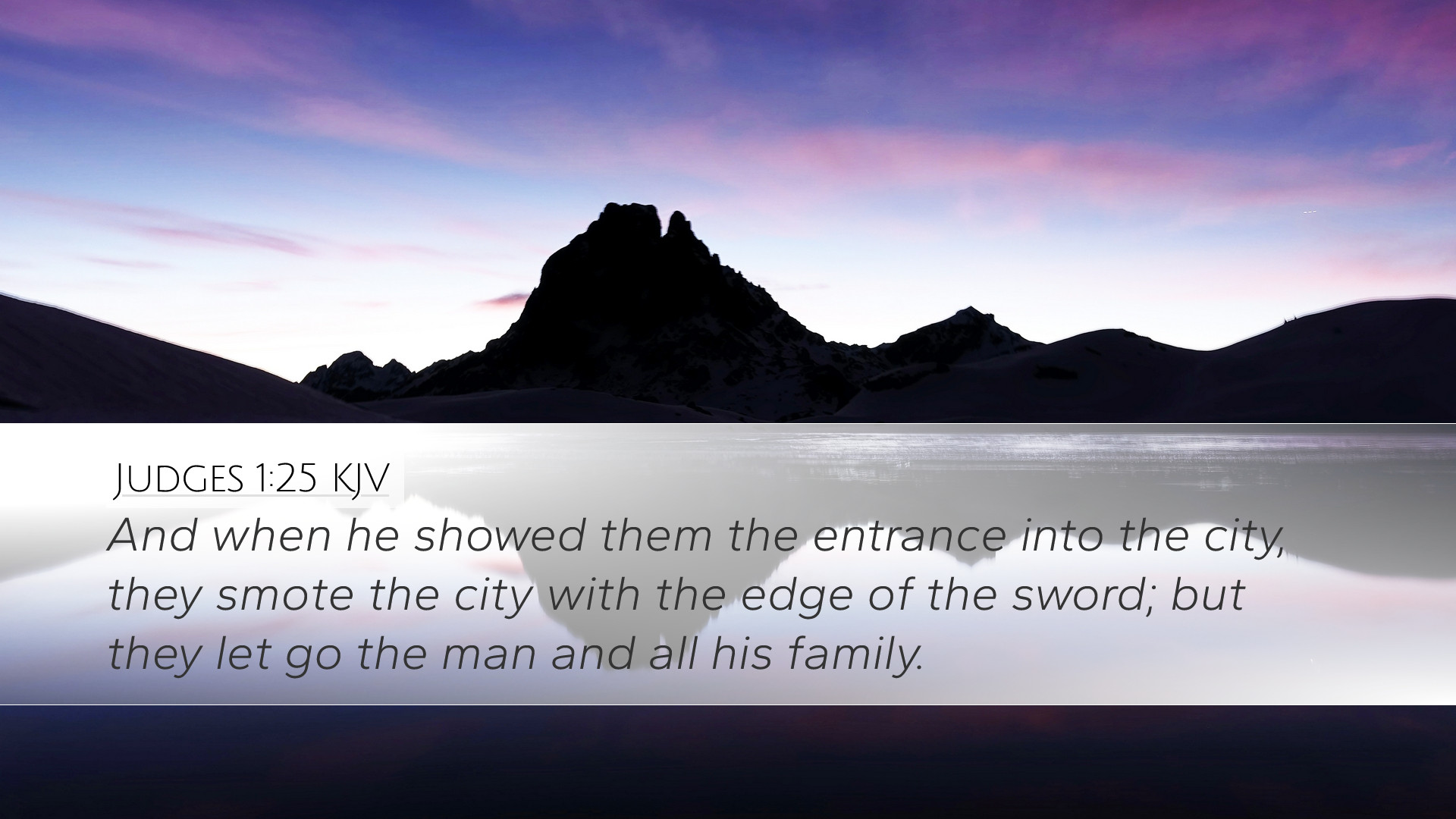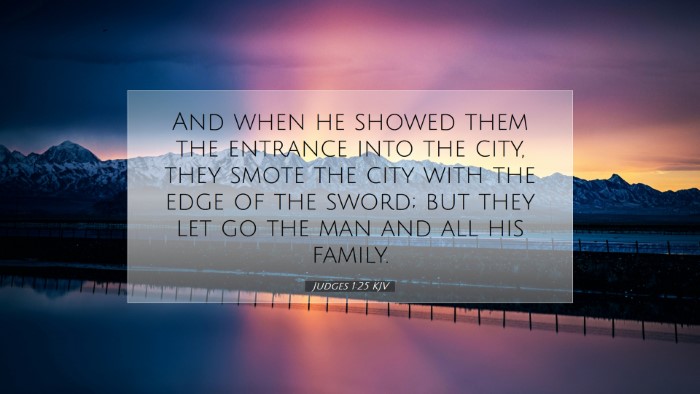Commentary on Judges 1:25
Judges 1:25 states: “And when he showed them the entrance of the city, they smote the city with the edge of the sword, and they let go the man and all his family.” This verse reveals the complexities of divine justice, human action, and the ethical implications surrounding warfare and conquest in biblical narratives.
Contextual Analysis
The Book of Judges chronicles a pivotal period in Israel's history, marking the time between the conquest of Canaan and the establishment of the monarchy. Here, the Israelites are depicted as seeking to claim the land promised to them by God, often encountering opposition from the Canaanites. The various judges demonstrate varying degrees of faithfulness and leadership, often reflecting the spiritual state of the people.
The Role of the Servant in Joshua 1:25
In this chapter, the reference to the man who showed the way into the city highlights a recurring theme of intercession and betrayal. Matthew Henry notes that this guide, who was likely a Canaanite, is a figure whose role is ambiguous; on one hand, he assists the Israelites, perhaps with self-preservation in mind, while on the other, he faces judgment along with his people.
Albert Barnes emphasizes the notion of mercy intertwined with judgment, illustrating how the man’s cooperation leads to the sparing of his family. This underscores the compassionate aspect of God’s judgment, which is significant in the Old Testament’s depiction of divine action.
Insights from Historical Context
Warfare in Ancient Israel: Warfare in biblical times often involved not just physical combat but also moral and ethical considerations. Adam Clarke reflects on the brutal nature of conquest, emphasizing that the violence depicted is never without consequence or moral weight. The Israelites were instructed to annihilate the Canaanites, yet there remained a thread of human compassion reflected in their sparing of the man and his family.
- Moral Complexity: The verse challenges readers to consider how justice and mercy can coexist within divine commands.
- Divine Sovereignty: God’s directives often come with heavy implications, prompting discussions about free will and predestination.
Theological Implications
The implications of Judges 1:25 extend beyond the historical narrative into profound theological territory. Clarke posits that this scenario informs our understanding of God's providence within the complexity of human choices. While God’s plan unfolds, human decisions still play a crucial role.
This raises pertinent questions for modern scholarship regarding the nature of divine justice. When God's commandments seem harsh, as in the destruction of whole cities, how do we reconcile these actions with a God characterized by love and compassion? This tension is vital for theological reflection.
Ethical Reflections
The moral concerns surrounding extraction and coercion, which result in the favoring of some individuals over others, lead to discussions that are ever-relevant today. Henry suggests that allowing the man and his family to escape could symbolize the opportunity for redemption, a theme prevalent in numerous biblical narratives.
- Understanding Justice: Exploring how justice is delivered and experienced by varying figures in the narrative.
- Redemption and Mercy: The potential for salvific outcomes even amidst divine judgment is a significant theme.
Practical Application
For pastors and theologians, Judges 1:25 can serve as a poignant reminder of the delicate balance of justice and mercy in ministry. The call to act righteously and justly, even in the face of dire circumstances, resonates throughout scripture and should inform preaching and teaching today.
Additionally, students of scripture are encouraged to view such narratives critically, assessing their implications both historically and in contemporary contexts. Reflecting on their ethical dimensions can deepen one's faith and understanding of God's character.
Concluding Thoughts
In summary, Judges 1:25 presents a complex narrative ripe with theological and ethical considerations. The interaction between divine commandments and human responses reflects ongoing struggles regarding faith, morality, and justice. Insights from respected commentators enhance our understanding and invite us into a deeper engagement with the text, encouraging reflection on how these ancient words inform modern faith and practice.


